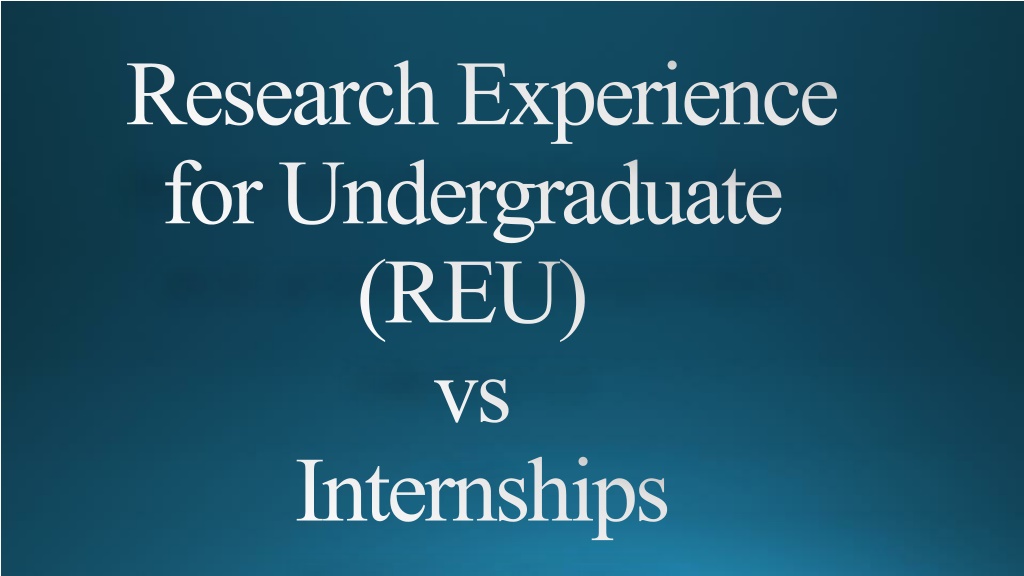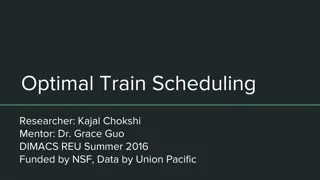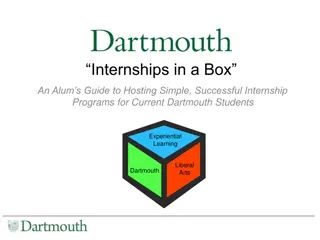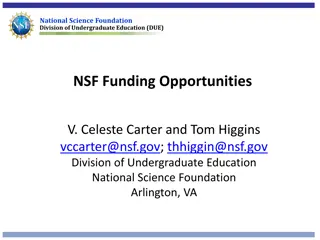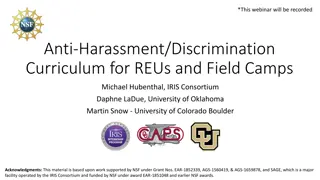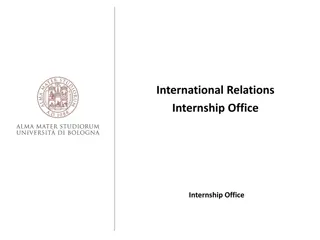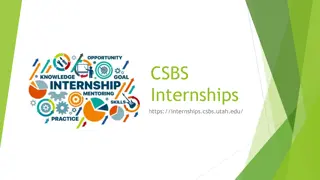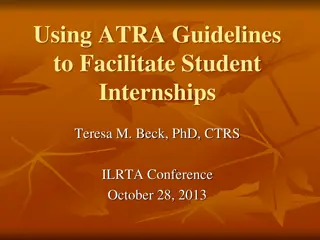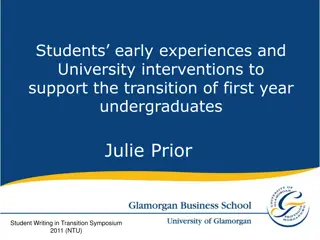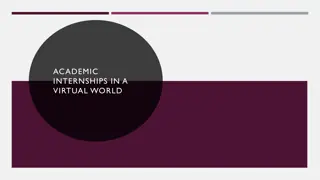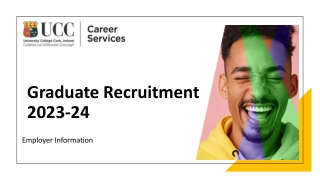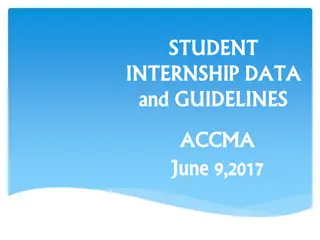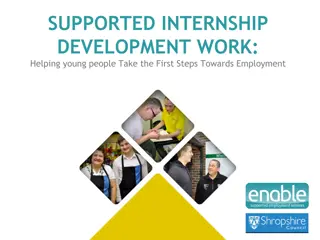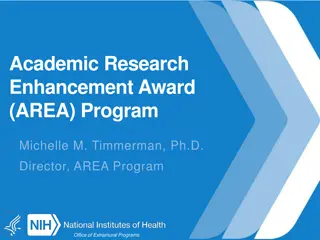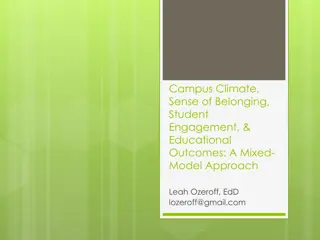Understanding Research Experiences for Undergraduates (REU) vs Internships
Research Experiences for Undergrads (REU) funded by the National Science Foundation (NSF) offer unique opportunities for students in the USA. These programs provide hands-on research experience, the chance for publication, exposure to diverse fields, and valuable skills for career progression. NSF funding supports most REU programs, making them competitive but rewarding experiences for undergraduates interested in research.
Download Presentation

Please find below an Image/Link to download the presentation.
The content on the website is provided AS IS for your information and personal use only. It may not be sold, licensed, or shared on other websites without obtaining consent from the author. Download presentation by click this link. If you encounter any issues during the download, it is possible that the publisher has removed the file from their server.
E N D
Presentation Transcript
Research Experience for Undergraduate (REU) vs Internships
What is REU? Research Experiences for Undergrads (REU) Funded by National Science Foundation (NSF) Only available to citizens/permanent residents of USA Cutting edge summer research at universities/institutes and some liberal arts Colleges: often~ 10 students per program Multidisciplinary fields of research Housing and modest stipend ($400-$500/week) provided Usually 8-10 weeks long Acceptance can be competitive
Why REU Doing research in an area that is interesting to you Your research could lead to publication(s) Exploring new places and meeting great scientists Research experience will help in making informed career decisions It is great experience to list on your resume for graduate school as well as job applications
Who is Funding REU? National Science Foundation (NSF) is funding most of the REU programs in the US. http://www.nsf.gov/crssprgm/re u/reu_search.jsp
What Do You Need to Do? You will need to offer a convincing argument for why you are interested. You just need to sell your skills. Good grades and good references are important Many of the REU programs prefer the under-represented groups/schools.
Community Colleges are a big source of great REU eligible students Applications are usually due January-April for the following summer. Find a program whose research area matches your interests.
Contact the listed primary or secondary contact person on the website. -Are they taking students this summer? - What are they looking for in potential students? Find faculty who can write strong letters of recommendation Work on your statement of academic, career, and research goals. How do you anticipate the REU help you achieve your goals?
Do your homework and read about the REU projects you are interested in. Contact a faculty member, at every REU program you applied to, whose research you are interested in and ask about skills he/she is looking for in the REU research student.
Internship Are defined as supervised, career-related work experiences leading to development of knowledge, skills, and abilities needed in a particular profession. Institutions invest a great deal of effort and resources in training internship awardees and usually hire them once done with their degrees if the awardee was proven to be a good fit with them. An internship is usually for one semester at a time. Could be paid or unpaid internship Full-time requires working 40 hr/week Part-time requires working 20 hr/week
Summer Internships in Chicago: http://www.internships.com/chicago-il Other Places: http://www.bio-rad.com/en- us/corporate/summer-internship https://careers.state.gov/intern http://www.summerinternships.com/internships/ http://www.ciee.org/intern/
http://www.internships.com/search/posts https://career.berkeley.edu/Internships/Int Current.stm The 5 Best Websites to Find Internships: http://www.huffingtonpost.com/her- campus/the-5-best-websites-to- fi_b_2860722.html
How Can Faculty Help? Recognize Students interests, abilities and potential Help searching for the best REU/Internship that matches your students interests, abilities and potential If you cannot write recommendation letters which highlight the student s strengths, find faculty members that can and communicate with them. Communicate with the REU/Internship institutions your students applied to Send your students to institutions where the you have contacts and known credibility.
